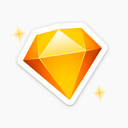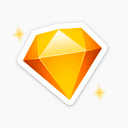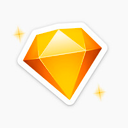Sketch vs ProtoPie (2026 Comparison)

Sketch offers a robust design environment with comprehensive tools and an extensive plugin ecosystem, making it a favorite among UI/UX designers for creating high-quality designs.
- Comprehensive design tools for UI/UX.
- Extensive plugin ecosystem.
- User-friendly interface.
- Limited interactive prototyping.
- Basic animation features.
Free plan?
NoStarting price
$10 per month per user
ProtoPie empowers designers with advanced interactive prototyping and collaboration features, making it an ideal choice for teams focused on user experience and testing.
- Advanced interactive prototyping.
- Excellent collaboration features.
- Robust animation capabilities.
- Limited design tools.
- Smaller plugin ecosystem.
Free plan?
YesStarting price
$25 per monthWhat is Sketch?
Sketch is a powerful design tool that caters to the needs of UI/UX designers. It offers a comprehensive suite of features for creating wireframes, prototypes, and high-fidelity designs. With its intuitive interface and robust plugin ecosystem, Sketch streamlines the design process, making it easier for designers to collaborate and iterate on their ideas. Whether you're working on a mobile app or a web project, Sketch provides the flexibility and precision needed to bring your creative visions to life.
What is ProtoPie?
ProtoPie is an advanced prototyping tool that empowers designers to create interactive and realistic prototypes without coding. It bridges the gap between design and development by allowing users to simulate complex interactions and animations. ProtoPie is particularly beneficial for teams that need to test and validate their designs before development, ensuring a seamless user experience. Its intuitive interface and powerful features make it a go-to choice for designers looking to create dynamic and engaging prototypes.
Pros and Cons of Sketch vs ProtoPie

Pros & Cons of Sketch
- Sketch offers a wide range of design tools that cater to the needs of UI/UX designers, making it a versatile choice for creating detailed and high-quality designs.
- With a vast array of plugins available, Sketch allows you to customize and extend its functionality, enhancing your design workflow and productivity.
- Sketch's intuitive interface makes it easy for designers of all skill levels to navigate and utilize its features effectively, streamlining the design process.
- While Sketch offers basic prototyping features, it lacks the depth and flexibility needed for creating complex interactive prototypes, which may be a limitation for some projects.
- Sketch provides basic animation capabilities, but it may not meet the needs of designers looking for more advanced animation options in their projects.

Pros & Cons of ProtoPie
- ProtoPie excels in creating complex interactions without coding, making it an ideal choice for designers focused on user experience and testing.
- ProtoPie supports seamless collaboration, allowing teams to work together effectively on complex projects, enhancing productivity and communication.
- With a wide range of animation options, ProtoPie enables designers to bring their ideas to life with dynamic and engaging prototypes.
- ProtoPie focuses more on prototyping, which means its design tools may not be as comprehensive as those offered by other design-focused software.
- While ProtoPie offers essential plugins, its ecosystem is not as extensive as some other design tools, which may limit customization options.
Sketch vs ProtoPie: At A Glance
Value to Price
When it comes to value for money, ProtoPie edges out Sketch with its comprehensive feature set and interactive prototyping capabilities. While Sketch offers a robust design environment, ProtoPie's ability to simulate complex interactions without coding provides a higher return on investment for teams focused on user experience testing. If you're looking for a tool that offers more bang for your buck, ProtoPie is the better choice.
Ease of Use
Both Sketch and ProtoPie are known for their user-friendly interfaces, but Sketch takes the lead with its intuitive design tools and extensive plugin ecosystem. ProtoPie, while powerful, may require a steeper learning curve for those unfamiliar with interaction design. If ease of use is your top priority, Sketch is the more accessible option for designers of all skill levels.
Functionality
ProtoPie excels in functionality with its ability to create highly interactive and realistic prototypes. Sketch, on the other hand, is more focused on static design and wireframing. For teams that need to test and validate complex interactions, ProtoPie offers superior functionality. If your projects demand advanced prototyping capabilities, ProtoPie is the tool to choose.
Scalability
Both tools offer scalability, but ProtoPie stands out with its ability to handle complex projects and team collaboration. Sketch is ideal for smaller teams or individual designers, while ProtoPie supports larger teams with its collaborative features. If you're working on large-scale projects, ProtoPie provides the scalability needed to manage and execute your designs effectively.
Integrations
Sketch boasts a wide range of integrations with popular design and development tools, making it a versatile choice for designers. ProtoPie, while offering essential integrations, is more limited in this regard. If seamless integration with other tools is crucial for your workflow, Sketch is the better option.
Customer Support
ProtoPie offers excellent customer support with responsive assistance and comprehensive resources. Sketch provides solid support but may not be as quick to respond. If reliable customer support is a priority, ProtoPie is the tool that ensures you have the help you need when you need it.
Security
Both Sketch and ProtoPie prioritize security, but ProtoPie takes it a step further with advanced security features and regular updates. Sketch offers standard security measures, but ProtoPie's commitment to protecting user data makes it the more secure choice. If security is a top concern, ProtoPie is the tool to trust.
Overall Rating
Overall, ProtoPie scores higher due to its advanced prototyping capabilities and superior customer support. Sketch remains a strong contender with its ease of use and extensive integrations. If you're looking for a tool that excels in interactive prototyping, ProtoPie is the clear winner.
Sketch vs ProtoPie: A Detailed Breakdown of Key Features
Interactive Prototyping
ProtoPie shines in interactive prototyping, allowing you to create complex interactions without writing a single line of code. Sketch, while offering basic prototyping features, doesn't match the depth of interaction that ProtoPie provides. If your projects require detailed and dynamic prototypes, ProtoPie is the tool that will meet your needs.
Design Tools
Sketch is renowned for its comprehensive design tools, making it a favorite among UI/UX designers. ProtoPie, while offering essential design features, focuses more on prototyping. If your primary need is a robust design environment, Sketch is the tool that will enhance your creative process.
Collaboration
ProtoPie offers advanced collaboration features, allowing teams to work together seamlessly on complex projects. Sketch provides collaboration tools but may not be as robust for larger teams. If team collaboration is a priority, ProtoPie is the tool that will facilitate effective teamwork.
Animation
ProtoPie excels in animation, offering a wide range of options to bring your designs to life. Sketch provides basic animation features but lacks the depth and flexibility of ProtoPie. If your projects demand intricate animations, ProtoPie is the tool that will deliver the results you need.
Plugin Ecosystem
Sketch boasts an extensive plugin ecosystem, allowing you to customize and extend its functionality. ProtoPie offers essential plugins but doesn't match the variety available in Sketch. If you rely on plugins to enhance your workflow, Sketch is the tool that will provide the flexibility you need.
User Testing
ProtoPie supports user testing with its interactive prototypes, enabling you to gather valuable feedback before development. Sketch offers basic user testing features but may not be as comprehensive. If user testing is a critical part of your process, ProtoPie is the tool that will support your needs.
Pricing Comparison of Sketch and ProtoPie
We’ve compiled the pricing tables and highlighted the key features of both Sketch and ProtoPie to aid in your decision-making process. Let’s explore what each platform has to offer.

Sketch Pricing Plans
- Collaborate in real-time with team members seamlessly.
- Access unlimited free Viewers for easy sharing.
- Inspect designs, test prototypes, and handoff to developers.
- Preview designs on iPhone or iPad for mobile testing.
- Work privately offline with local document saving.
- Keep your license forever with one-time purchase.
- Receive one year of updates for the Mac app.
- Excludes collaborative features and web app access.
- Unlimited online storage for all design files.
- Invoice-based billing for streamlined financial processes.
- Powerful permissions directory for team management.
- Priority support and dedicated customer success manager.

ProtoPie Pricing Plans
- Design with a limit of 2 scenes per prototype.
- Utilize 50MB of Cloud storage for your projects.
- Access personal libraries for organizing assets.
- Record one handoff for sharing with others.
- Design with a limit of 10 scenes per prototype.
- Utilize 500MB of Cloud storage for your projects.
- Remove watermark from your prototypes.
- Access to Connect Core add-on for enhanced features.
- Access unlimited handoff recordings for collaboration.
- Utilize 5GB of Cloud storage per team for projects.
- Save prototypes locally for offline access.
- Access team libraries for shared resources.
- Dedicated training and support for your team.
- Custom hardware integrations for specific needs.
- User testing and closed beta for feedback.
- Enterprise-grade security and SSO for protection.
Our Rating Methodology
We rigorously evaluate each prototyping tool, focusing on key aspects like functionality, ease of use, and scalability. By analyzing user feedback and testing features, we ensure our recommendations align with your needs. Each factor is weighted to provide a reliable final rating, helping you make informed decisions.
Sketch or ProtoPie: Which One Matches Your Business Needs?
Choose Sketch If You Need ...
- Comprehensive design tools
If you are a designer who needs a comprehensive set of design tools for creating high-quality UI/UX designs, Sketch is the ideal choice. Its extensive plugin ecosystem and user-friendly interface make it a versatile tool for designers of all skill levels.
- Extensive plugin ecosystem
If you rely on plugins to enhance your design workflow, Sketch offers an extensive plugin ecosystem that allows you to customize and extend its functionality to suit your needs.
Choose ProtoPie If You Need ...
- Advanced interactive prototyping
If your projects require advanced interactive prototyping capabilities, ProtoPie is the tool to choose. Its ability to create complex interactions without coding makes it an ideal choice for designers focused on user experience and testing.
- Excellent collaboration features
If team collaboration is a priority, ProtoPie offers excellent collaboration features that allow teams to work together seamlessly on complex projects, enhancing productivity and communication.
Frequently Asked Questions
 Which tool is better for interactive prototyping?
Which tool is better for interactive prototyping?
 Which tool offers more design features?
Which tool offers more design features?
 Which tool is more user-friendly?
Which tool is more user-friendly?
 Which tool is better for team collaboration?
Which tool is better for team collaboration?
 Which tool has a larger plugin ecosystem?
Which tool has a larger plugin ecosystem?
 Which tool offers better customer support?
Which tool offers better customer support?

Anastasia Belyh
Anastasia Belyh is a senior tech writer with over 15 years of experience in marketing, sales, and business software. Having worked in investment banking, management consulting, and founded multiple companies, her in-depth knowledge and hands-on expertise make her software reviews authoritative, trustworthy, and highly practical for business decision-makers.



